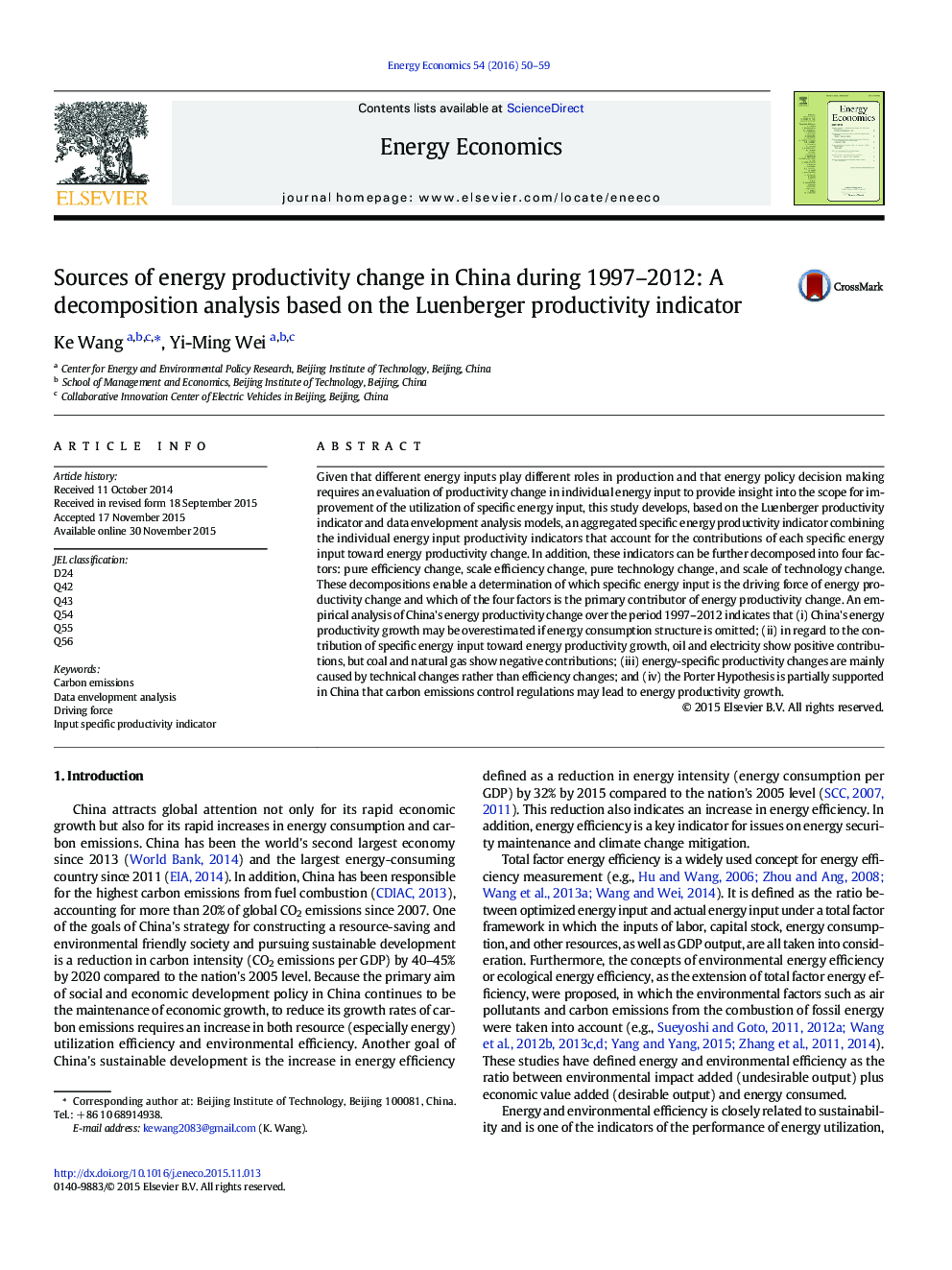| کد مقاله | کد نشریه | سال انتشار | مقاله انگلیسی | نسخه تمام متن |
|---|---|---|---|---|
| 5064059 | 1476710 | 2016 | 10 صفحه PDF | دانلود رایگان |

- An energy input specific Luenberger productivity indicator is proposed.
- It enables to examine the contribution of specific energy input productivity change.
- It can be decomposed for identifying pure and scale efficiency changes, as well as pure and scale technical changes.
- China's energy productivity growth may be overestimated if energy consumption structure is omitted.
- The Porter Hypothesis is partially supported in China.
Given that different energy inputs play different roles in production and that energy policy decision making requires an evaluation of productivity change in individual energy input to provide insight into the scope for improvement of the utilization of specific energy input, this study develops, based on the Luenberger productivity indicator and data envelopment analysis models, an aggregated specific energy productivity indicator combining the individual energy input productivity indicators that account for the contributions of each specific energy input toward energy productivity change. In addition, these indicators can be further decomposed into four factors: pure efficiency change, scale efficiency change, pure technology change, and scale of technology change. These decompositions enable a determination of which specific energy input is the driving force of energy productivity change and which of the four factors is the primary contributor of energy productivity change. An empirical analysis of China's energy productivity change over the period 1997-2012 indicates that (i) China's energy productivity growth may be overestimated if energy consumption structure is omitted; (ii) in regard to the contribution of specific energy input toward energy productivity growth, oil and electricity show positive contributions, but coal and natural gas show negative contributions; (iii) energy-specific productivity changes are mainly caused by technical changes rather than efficiency changes; and (iv) the Porter Hypothesis is partially supported in China that carbon emissions control regulations may lead to energy productivity growth.
Journal: Energy Economics - Volume 54, February 2016, Pages 50-59